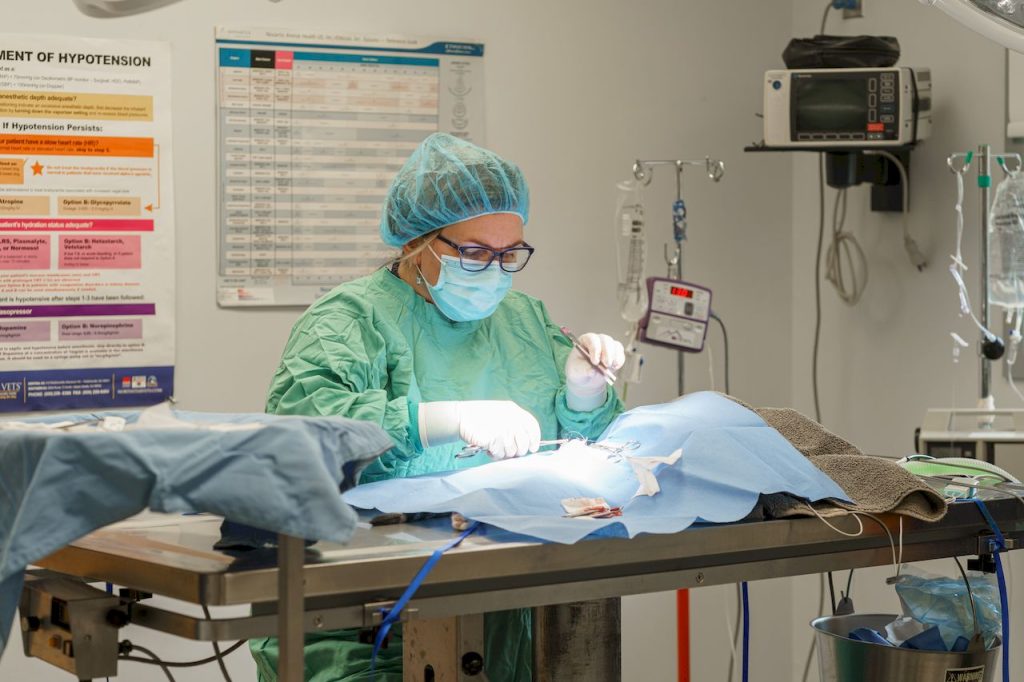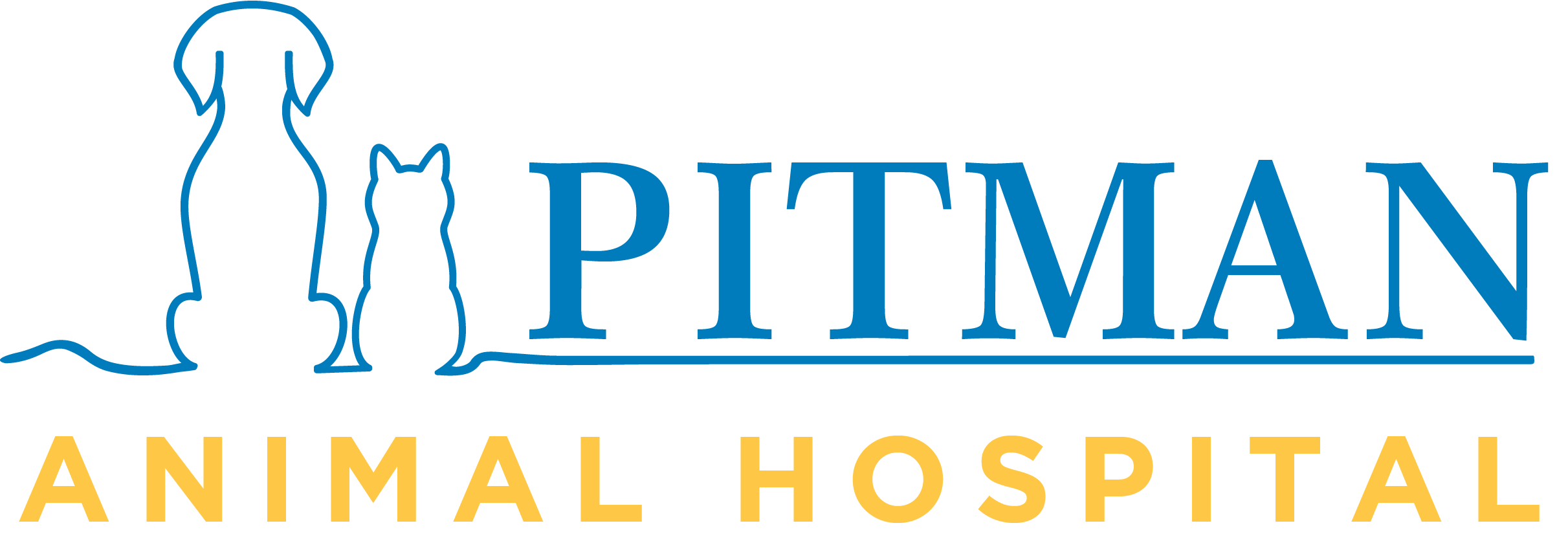Surgery Services

Your Pet's Surgery
The doctors at Pitman Animal Hospital are among the best trained, skilled and experienced veterinary surgeons found practicing at any hospital. Not only are they accomplished professionally, they also have a deep sense of compassion for all animals.
We understand that the decision to allow your beloved companion to undergo surgery is never an easy one. Despite the confidence we have in our abilities and state-of-the-art surgical suite, we know that surgery is difficult for both you and your pet. This is why we work as hard as we do to ensure your pet’s procedure is as comfortable and stress-free as possible.
Perhaps the most important pre-surgical step we take is to discuss why we believe a particular procedure is necessary and what it entails. We also provide information on proper postoperative care and answer any questions you may have so that you feel comfortable that you are making the right choice for your pet.
All of us at Pitman Animal Hospital believe that our personal attention to each patient and client, as well as our experience, is what makes our surgical services unique.
Surgical Services
Soft Tissue Surgery
- Abdominal surgeries of the GI tract
- Urinary system surgeries
- Neuters and spays
- Cancer surgeries
- Wound repair procedures
- Reconstructive surgeries
- Ear, nose and throat procedures
- Hernia repairs
- Mass removals
- Ophthalmic surgeries
- Emergency surgeries
Anesthesia & Monitoring
Ensuring the health and safety of your pet during surgery is of the utmost importance and requires an anesthetic and monitoring regimen that adheres to the highest principles and ideals of veterinary medicine. At Pitman Animal Hospital, your pet has access to state-of-the-art anesthetic administration and cardiovascular monitoring equipment and protocols.
We place a strong emphasis on post-operative pain management, and we always follow-up with post-surgical contact with pet owners.
Prior to your pet’s surgery, he or she will be examined and a pre-surgical blood screen is performed. The results of these tests and your pet’s past anesthetic history, breed, pre existing conditions and age are used to create an individualized anesthesia protocol for your pet.
While under anesthesia your pet will be cared for by a well-trained and experienced veterinary technician. Our monitoring system tracks blood pressure, heart rate, respiratory rate, body temperature and oxygen level.
Postoperative Care
Pain Management
We all know that pain hurts, but often forget that pain has other detrimental effects on the body.
Pain slows healing, decreases activity, causes behavior changes (such as aggression, anxiety, and depression), worsens diseases like arthritis and potentially some cancers, and interferes with the bond between you and your pet.
In order to combat those effects, we use an advanced, multi-modal protocol to prevent and treat pain in our patients. Whenever possible, we use a combination of local anesthetics, NSAIDs (non-steroidal anti-inflammatory drugs), and narcotic pain relievers. We also try to include non-drug methods like exercise and physical therapy when appropriate.






